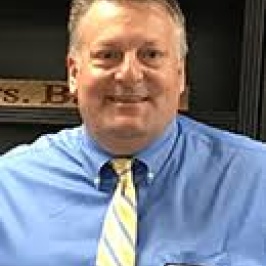Critical Information
K-12 teachers report the highest burnout rate of all U.S. professions, with more than four out of every 10 teachers noting that they feel burned out "always" or "very often" at work, according to a June 2022 Gallup poll.
Two modes for promoting resilience
Synchronous solutions…
The overarching goal of this program is retention. Through stress inoculation, faculty will use our unique Resilience Rubric, to prepare for the challenges of being an educator, causing burnout. Each member will construct a unique Prosilience Plan that helps identify and remediate risk factors, generated in both their personal and professional lives. There are two options:
Option #1 (Trailblazers): Each school identifies faculty with the greatest potential for success. These faculty members are led through a six month program to develop skills to help them become more successful. These faculty members will resonate success, inspiring others to greatness. In the second year, Resilience Advocates (RA's) will learn how to bring this work into their classrooms to promote student success.
Option #2 (New Hires): Faculty in their first two years of employment with the district. Our meetings will occur on the last Tuesday of each month (holiday exceptions), from 2:30-3:15, lasting approximately 45 minutes. During this time, an expert facilitator will guide the group through a combination of content and process, helping form an invaluable support net
Asynchronous solutions…
include on-demand video engagements on a range of topics from behavioral health to physical wellness. Faculty (and parents) can learn the rubric for developing greater resilience, to reduce stress and increase longevity. Enjoy a video montage on preventing burnout from our on-demand video engagements.
On-demand virtual engagements

Technology or Wellness Part V
In this final series installment, we consider a school’s responsibility in adapting socially responsible technology as part of an overall plan for community wellness.

The Psychology of Weight Loss Part I
If you've tried diets or this is your first attempt at weight loss, you are about to experience something different. The key question are why we have extra weight and why we haven't lost it.

The Psychology of Weight Loss Part II
Awareness is the key to all change, as we first need to understand what is before trying to figure out what can be. Explore your issues with food and body image.

The Psychology of Weight Loss Part III
We eat for many reasons other than hunger, such as loneliness, sadness, fear, guilt, and anger. If we don’t pay close attention to what need is being activated, we may substitute food for emotion.

The Psychology of Weight Loss Part IV
We are moving into lifestyle change. Using the previous learning, you will create sustainable actions from your new health paradigm. Alter your relationship with food and improve your overall health.

Work Life Balance
Teachers are caregivers, often relying on leftover energy from their personal life. Learn why we do this and how to create change.

Wellness Wednesday
Wellness Wednesday will be an assigned Wednesday each month.
Success Stories

"Whole School Health Through Psychosocial Emotional Learning highlights the importance of relationships, communication, and compassion for others. It presents a critical view in supporting, training, and retaining teachers through the lens of engaging and modeling behaviors that will help our rural students be better civic leaders and community members. My favorite quote from the book gives credit to the author's upbringing and modeling from his parents: 'We must experience the world through others so we can fully engage in educating all children. My father and mother modeled to me and my siblings how to experience the world through somebody else’s eyes, especially if their outer differences stirred up discomfort or displeasure, enriching all lives involved.' I recommend all leaders, teachers, and stakeholders secure their copy as they prepare for school."
Allen Pratt, Executive Director, National Rural Education Association (NREA)